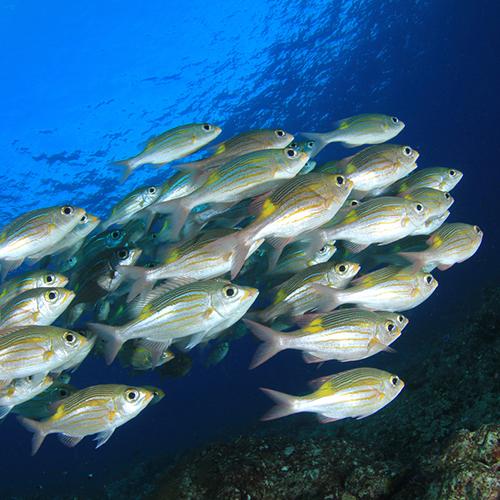17 October 2019
 Four UniSA researchers have collectively been awarded $3.2 million by the Federal Government to further their work into seafood fraud, plasma devices, desalination and gene expression.
Four UniSA researchers have collectively been awarded $3.2 million by the Federal Government to further their work into seafood fraud, plasma devices, desalination and gene expression.
Details of the 2019 Australian Research Council (ARC) Future Fellowships are as follows:
- Dr Zoe Doubleday ($738,020): Establishing a global framework to trace the origin of seafood.
The project will focus on creating universal markers based on the chemical properties of individual animals to trace the geographic origins of seafood from catch to table. This will help combat seafood fraud, which allows illegal and unsustainable fishing to go unchecked. Dr Doubleday’s research will involve building maps of ocean chemistry, combining ecology, chemistry and seafood forensics, all within the Future Industries Institute.
- Dr Endre Szili ($764,840): Advancing plasma technologies for the life sciences.
The project will focus on applying ionized gas (plasma) to living tissues to successfully treat infected wounds and cancers. When plasma reacts with the surrounding air it generates a rich mixture of reactive oxygen and nitrogen species (RONS), which are important in tackling disease. Dr Szili aims to better understand the role of plasma in delivering RONS to diseased cells. This new knowledge will underpin the development of new medical plasma technologies to help combat major healthcare challenges, including diabetic wounds which cost Australians over $3 billion annually.
- Dr Haolan Xu ($890,287): Improving anti-salt crystallisation for solar-steam desalination.
This project aims to solve a critical issue threatening human health, industrial and social development – the provision of clean water, an issue exacerbated in drought-affected Australia. A long-term goal is to use solar energy to drive seawater desalination and purify underground water. A process known as solar-steam generation is the most energy efficient method but is thwarted by the generation of salt crystals during evaporation. Dr Xu and his team hope to solve this problem, which will benefit millions of people worldwide.
- Dr Cameron Bracken ($876,038): Hidden complexity in microRNA function.
Dr Bracken’s project will advance existing knowledge about microRNA biology, small molecules found in plants, animals and some viruses that suppress gene expression. By better understanding the mechanisms through which microRNAs work, it is expected to provide substantial benefits for the agricultural industry (improving crops) as well as therapeutic applications to combat human diseases.
Media contact: Candy Gibson office +61 8 8302 0961 mobile: +61 434 605 142
email: candy.gibson@unisa.edu.au



